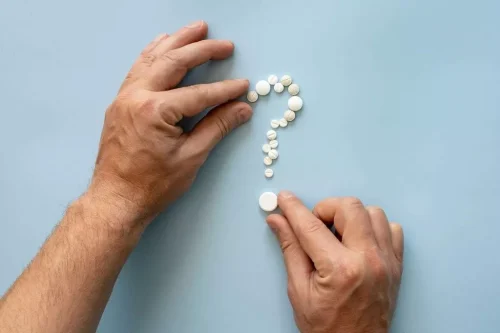
A potentially more effective tactic for speeding up the THC detoxification process might be cutting back on the Big Macs and hitting the gym. However, this initial “false positive” would not hold up to the more rigorous second round of confirmatory testing, which specifically measures THC-COOH. Given these preliminary grains of salt, however, several studies have explored this question over the years, offering some general guidance for those awaiting an impending drug test. The information contained in this site is provided for informational purposes only, and should not be construed as medical or legal advice. Quantitative testing measures the actual quantity of a substance. Qualitative testing tells you if a substance is there or not.
Legal Adult Use and Possession in NYC

While some people swear by these methods, scientific evidence supporting their effectiveness is limited. It’s essential to approach these products with caution and skepticism, as they may not produce reliable results. It’s important to note that individual variations in metabolism, hydration, and other factors can influence the detectability of marijuana. Additionally, advancements in testing methods and variations in cutoff levels can impact results.
- It’s important to store edibles safely to protect kids and pets and take precautions to make sure that you don’t accidentally take too much.
- Sure, there are lots of this kind of anecdotal cases but nobody really likes to risk his or her job with something as serious as failing a drug test.
- Your body could have metabolites present anywhere from 45 to 80 days.
- Unfortunately, marijuana can accumulate in your body and it takes significantly longer time to leave the system.
- Remember, factors like metabolism and frequency of use play a crucial role in determining this duration.
How long is weed detectable on a drug test?
- THC can still be detected in new hair growth for up to 90 days.
- Or at the very least, minimize your weed intake for the time being.
- THC metabolites can be detected in urine samples, blood tests, and hair follicles, with chronic users experiencing longer detection periods.
- If you’re wondering “how long does marijuana stay in your system?
THCA stands for tetrahydrocannabinolic acid—it’s what you find in fresh cannabis plants. Don’t know if this question has been asked, but how long are edibles detected when being by mouth swap. I had 1 chocolate candy filled with carmel edible of christmas day. I ate a cookie 40mg and tested dirty 2weeks later iam 73years old and weigh195lbs. So, a few days (or weeks) before taking the test, try to get as much sleep as possible.
How Long Does Weed Stay in Your Hair?
Long-term effects result in some permanent changes to the brain, such as losing mental abilities and functioning. Marijuana, when inhaled, exhibits short- and long-term effects on the brain. Since THC-COOH binds to fat in the body, higher body fat translates to THC remaining in the body longer.

The 60s and 70s heralded the debut of THC tests, mainly for legal probes. Let’s be honest, these early prototypes weren’t exactly foolproof. When it comes to employment, medical screenings, https://ecosoberhouse.com/ or various other reasons, urine tests are the go-to. Get ready for a 30-day encore, with the afterproducts of THC processing detectable in your system for 30 days or more.

How much do you have to smoke to fail a drug test?
Most of the other drugs (even hard drugs) leave our system in 1-3 days after ingestion. Unfortunately, marijuana can accumulate in your body and it takes significantly longer time to leave the system. Many who are facing a drug test but are unwilling to fully give up cannabis turn to synthetic cannabinoids in the hopes of cheating traditional tests.
How long Does THC Stay in Your System?
American Addiction Centers (AAC) is committed to delivering original, truthful, accurate, unbiased, and medically current information. We strive to create content that is clear, concise, and easy to understand.
Additionally, it can increase heart rate, impair motor skills, and alter sensory perceptions. Long-term use can affect brain development, particularly in adolescents, and lead to addiction and cognitive impairments. It would be much more helpful if everyone would provide last smoked info, body stats, and if they passed or not. Roadside saliva tests have been very controversial recently. The problem is that you can test positive to THC without even being high, so it’s still very difficult to determine if the driver is actually impaired or not.
Testing for THC and its metabolites can only determine whether cannabis has been used within a given window of time. Researchers don’t know how long the effects of chronic cannabis use last. how long does weed stay in your system These kits don’t work reliably, and drinking large quantities of water in a short period of time can be fatal. THC can enter the saliva through exposure to secondhand cannabis smoke.